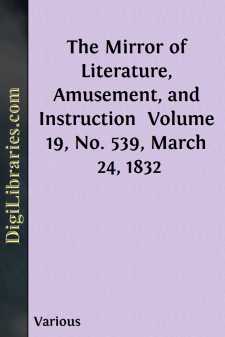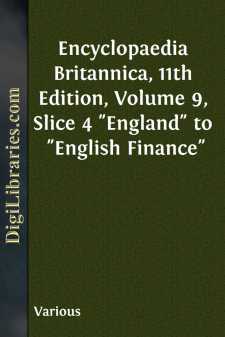Categories
- Antiques & Collectibles 13
- Architecture 36
- Art 48
- Bibles 22
- Biography & Autobiography 813
- Body, Mind & Spirit 142
- Business & Economics 28
- Children's Books 17
- Children's Fiction 14
- Computers 4
- Cooking 94
- Crafts & Hobbies 4
- Drama 346
- Education 46
- Family & Relationships 57
- Fiction 11829
- Games 19
- Gardening 17
- Health & Fitness 34
- History 1377
- House & Home 1
- Humor 147
- Juvenile Fiction 1873
- Juvenile Nonfiction 202
- Language Arts & Disciplines 88
- Law 16
- Literary Collections 686
- Literary Criticism 179
- Mathematics 13
- Medical 41
- Music 40
- Nature 179
- Non-Classifiable 1768
- Performing Arts 7
- Periodicals 1453
- Philosophy 64
- Photography 2
- Poetry 896
- Political Science 203
- Psychology 42
- Reference 154
- Religion 513
- Science 126
- Self-Help 84
- Social Science 81
- Sports & Recreation 34
- Study Aids 3
- Technology & Engineering 59
- Transportation 23
- Travel 463
- True Crime 29
Our website is made possible by displaying online advertisements to our visitors.
Please consider supporting us by disabling your ad blocker.
The Mirror of Literature, Amusement, and Instruction Volume 19, No. 539, March 24, 1832
by: Various
Categories:
Description:
Excerpt
WINDSOR CASTLE, (N.E.)
Our sketchy tour of Windsor Castle has hitherto been told in visits far between, perhaps, if not few, for the interesting character of the whole fabric.
The present Cut includes the North-east view, a picturesque if not important point. The reader will remember, if he has not enjoyed, the splendid terrace on the north; this is now continued on the eastern side. The fine tower at the eastern end of the north terrace, (at the angle,) is Brunswick Tower, with a projecting bastion in its front containing the apparatus for heating the orangery, with rooms for the attendants; it is octagon shaped, and has a most commanding appearance, the height being 120 feet above the level of the terrace.
A staircase turret communicates with the apartments, the principal one being appropriated as a private dining-room by the late King, while the larger apartments on the east front were reserved for splendid entertainments. In a central position between the state dining-room and St. George's Hall is a music saloon, in which is placed a fine-toned organ. A communication has been effected between Brunswick Tower and the state apartments by a corridor terminating at the King's Guard Chamber, where a new tower, named after George the Third, has been erected: the principal window is extremely large, and divided by Gothic tracery into several compartments, producing a noble and cathedral-like appearance.
Beneath the Castle, in the Engraving, are seen the wooded slopes of the Little Park, the "green retreats" of Pope, where
——Waving groves a checker'd scene display
And part admit, and part exclude the day.
*** The friendly suggestion of our Correspondent, G.C. (Windsor Castle) shall be considered.
THE MARCH OF MIND.
(To the Editor.)
It is generally supposed that the extensive search after, and diffusion of, knowledge, is in a great measure peculiar to these present times. It seems therefore to me a very curious thing to find a learned man and an accomplished courtier protesting against book-learning as an evil, so far back as the year 1646, and a curious thing he himself appears to have thought it, introducing his opinion as a "paradox" until he explains. In this explanation we find the same opinion that is now strenuously insisted on by Mr. Cobbett, namely, that a man who properly understands his own business or employment, though he have nothing of literature, is by no means to be accounted ignorant.
The letters of James Howell, Esq. are well known as fluent examples of the best style of writing of his day, and as repositories of many curious facts and intelligent remarks. The following letter appears to be addressed to Lord Dorchester—
"My Lord,—The subject of this letter may, peradventure, seem a paradox to some, but not, I know, to your Lordship, when you are pleased to weigh well the reasons. Learning is a thing that hath been much cried up, and coveted in all ages, especially in this last century of years, by people of all sorts, though never so mean and mechanical; every man strains his fortune to keep his children at school; the cobbler will clout it till midnight, the porter will carry burdens till his bones crack again, the ploughman will pinch both back and belly to give his son learning, and I find that this ambition reigns no where so much as in this island....












